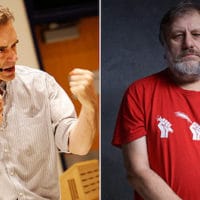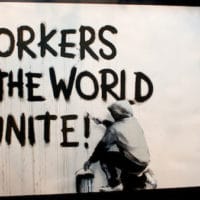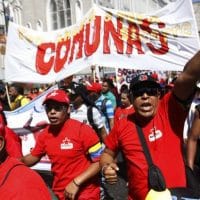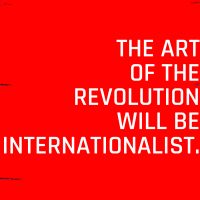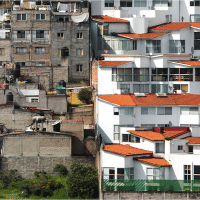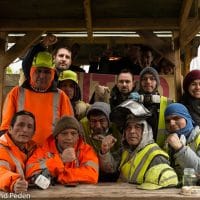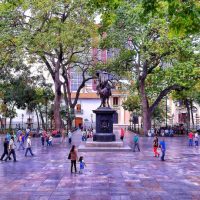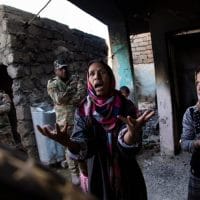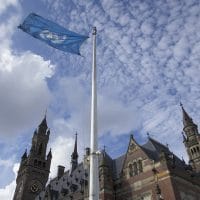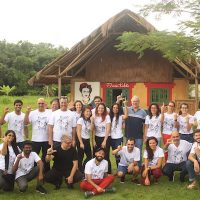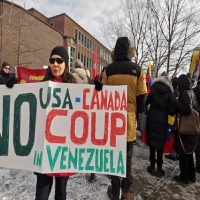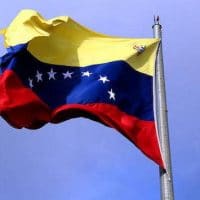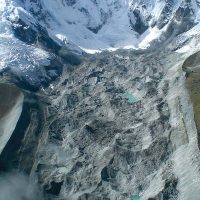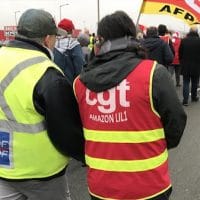-
‘Crustacean Jung v Cocaine Hegel’: Zizek-Peterson debate blowout sparks meme war
In the wake of Saturday’s debate between intellectual superstars Slavoj Zizek and Jordan Peterson, an onslaught of mockery has appeared online satirizing the clash between the highly-memeable thinkers.
-
Workers of the World unite (at last)
Once seen as the vanguard of a new social order, the contemporary labor movement has been written off by many progressive activists and scholars as a relic of the past. They should not be so hasty. Rather than spelling the beginning of the end for organized labor, globalization has brought new opportunities for reinvention, and a sea change in both trade unions and the wider labor movement.
-
Defending Venezuela: Two Approaches
The law of diminishing returns does not have to operate in the field of international solidarity.
-
The mountain of corporate debt will be the seed of the next financial crisis
What have they done with the money? Have they invested in research and development, in production, in the ecological transition, in creating descent jobs, warding off climate change? Not at all!
-
Dossier 15: The art of the revolution will be internationalist
We need all of the cultural workers today—from graphic designers to cartoonists, programmers to poets, psychologists to meme-makers—to seize what we know in order to dream and to construct a world that is not only possible, but necessary.
-
Unequal scenes
Inequalities in our social fabric are oftentimes hidden, and hard to see from ground level. Visual barriers, including the structures themselves, prevent us from seeing the incredible contrasts that exist side by side in our cities.
-
A new unionism for the twenty-first century
As we contemplate the ongoing decline of British trade unions, and as Americans consider their next move after the Supreme Court’s Janus vs AFSME decision, the the Independent Workers of Great Britain (IWGB) and United Voices of the World (UVW) point towards an alternative way of organising, fighting—and winning.
-
Russiagate implodes, pleasing Trump but leaving the left in the cold
With Mueller’s “no collusion” verdict, Donald Trump can claim to have been vindicated in the Russiagate saga, but there will be no respite for the real left—not to be confused with the phony “resistance” that has run on Kremlin-hate (and Syria hate and Venezuela hate) for the past two years.
-
Venezuela in the Crisis
The solution of the Venezuelan “crisis” lies in good faith negotiations between the government and the opposition, an end to the economic war, and the lifting of sanctions.
-
The sunrise will be the same for those who wake and those who never will
Disregard by the dominant powers of human lives in places such as Iraq has a long history. It goes back a hundred years.
-
Chagos and the dark soul of the British Labour Party
This analysis shows there could be no more startling illustration of the operation of the brutal and ruthless British Establishment in an undisguisedly Imperialist cause.
-
Women marchers and absentees
Berlin, alone among Germany’s 16 states, has declared International Women’s Day a paid holiday, compensating for the fact that the city-state has fewer religious holidays than all the others. A third of the city was once part of the (East) German Democratic Republic, which always marked the day; that may also have contributed to the decision. This was its first year.
-
We refuse to stop dreaming
Above all, we’d like to demand the right to dream. For us, the present is unacceptable. We demand the future.
-
Canadian support for intervention in Venezuela
The Liberal Party of Canada is ensnared in a scandal alleging high-level government intervention to shield a major engineering firm from criminal prosecution over its practices abroad. The timing of the scandal is note worthy. It has emerged after a high profile role taken by the governing Liberals in destabilizing Venezuela. Looking at the firms operations in Venezuela provides a broader context of Canadian capitalism and imperialism.
-
The Venezuela crisis and realpolitik
As heads of government, democratically entrusted with safeguarding the welfare of all Venezuelans, Chavez and Maduro bear overall responsibility for the economic crisis, but they are not alone.
-
‘The neoliberal project is alive but has lost its legitimacy’: David Harvey
In an interview with The Wire, the well-known Marxist scholar talks about the surge of populist and right-wing politics and the future of neoliberalism, capitalism and technology.
-
Contrary creatures
A majority of Germans want peaceful relations with Russia (and in general), despite the media, politicians and big biz groups pulling toward catastrophe.
-
Dossier 13: The new intellectual
These two matters—the battle of ideas and the new intellectual—take up the first two parts of this dossier. The third part enters a brief discussion of our political context and offers a map of our concerns and our research. We look forward to your response to our invitation to a dialogue.
-
Terrifying assessment of a Himalayan melting
New report predicts the impact of climate change on Nepal’s mountains may be much worse than we thought.
-
As Macron prepares new repressive measures Yellow Vests and Red Unions strike together
On Tues, Feb. 5, as the Macron government pushed harsh repressive laws against demonstrators through the National Assembly, the Yellow Vests joined with France’s unions for the first time in a day-long, nation-wide “General Strike.”

